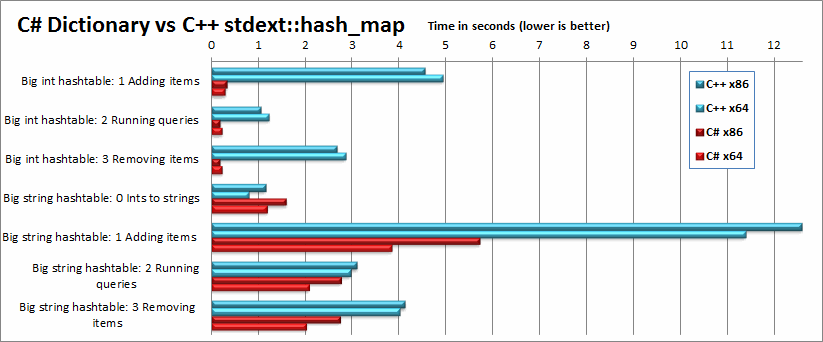
Introduction
I love the .NET Framework, C# and IntelliSense, but a lot of people are still saying it's slower than C++, pointing out that video games and "major applications" are still written in C++. Naysayers often point out that apps like Office, Internet Explorer, and Windows Media Player are still written in C++, apparently implying that C++ is still the best choice for performance. But wait, isn't this just because those applications are older than the .NET Framework itself, or because the .NET Framework has lousy support for DirectShow, or less-than-ideal support for Direct3D?
Well, I've been using C# for years and rarely had any complaint about its performance--that is, until I wrote a program for a Pocket PC and was shocked to discover that it required 35 seconds to start up.
With this article, I am attempting to make a fair comparison between the performance of C# and C++ (unmanaged), in both desktop and mobile (Windows CE) scenarios. So that the comparison is fair, I wrote most of the code in C# first, and manually ported it, line-by-line, to C++, replacing standard .NET classes with STL equivalents. Because this is labor-intensive, however, the variety and scope of the benchmarks are limited.
To compile both languages I used Visual Studio 2008; I have access to Visual Studio 2010, but Microsoft dropped support for Windows CE in VS 2010 so it was easier to keep using 2008. I welcome readers to try compiling the C++ code on GCC (there is a small amount of Windows-specific code you may have to deal with) or VS 2010 to see if it performs differently. Of course, any differences you observe may be caused by using a different processor as well as a different compiler. Likewise, if someone has access to Windows Phone 7, I welcome you to run the C# benchmark there and see if you get better results than I did for Windows CE.
My test workstation is a Quad-core 64-bit Intel Q9500 @ 2.83 GHz (but all tests are single-threaded) on Windows 7. The mobile device is a Mentor Ranger 4 with a 600MHz ARM processor, and .NET Compact Framework 3.5.
Read more: Codeproject



0 comments:
Post a Comment